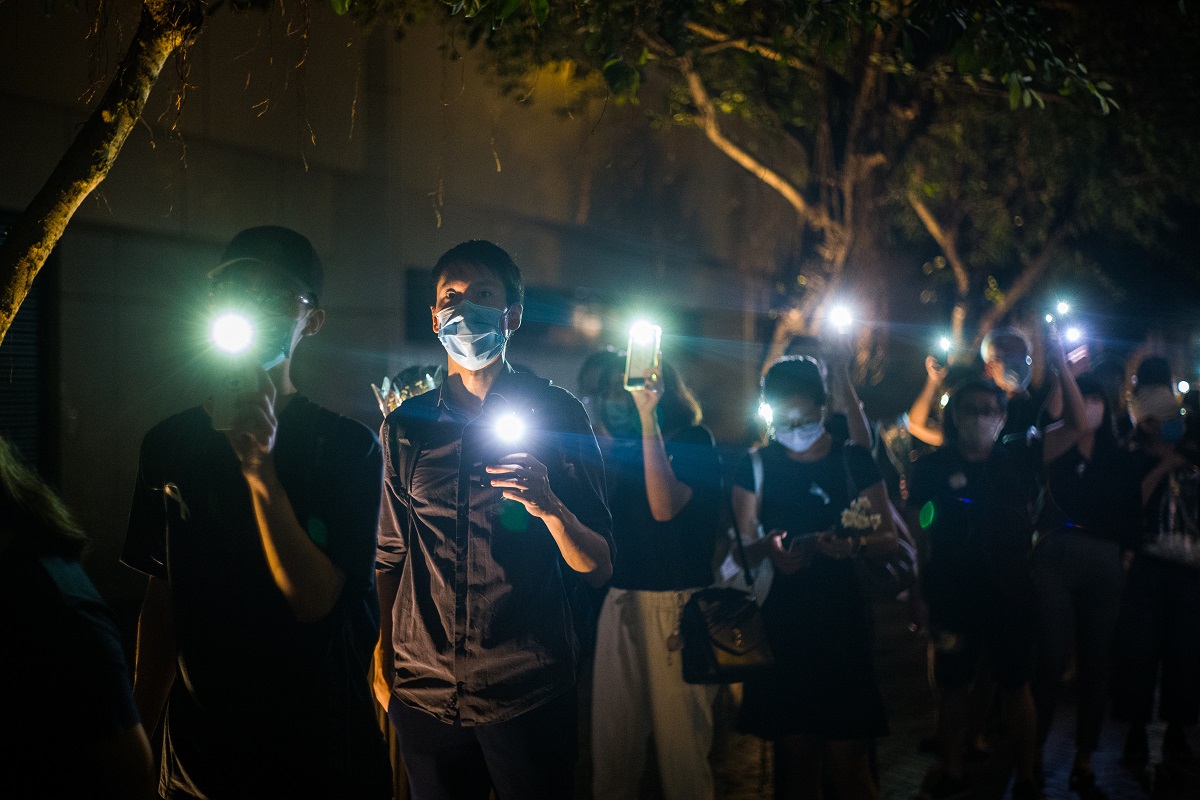PM spells out India’s position on China
I n a recent interview to Newsweek, the Prime Minister, discussing Indo-China relations, commented, “For India, the relationship with China is important and significant.
Tam’s comments came after Deng Zhonghua, the deputy of China’s Hong Kong and Macau Affairs Office, said Monday that Beijing will have jurisdiction over some “extremely rare” national security cases once the law is passed.

Pro-democracy activists queue to pay their respects to mark the one year anniversary of a man who fell to his death after hanging a protest banner against the now-withdrawn extradition bill on the scaffolding outside a shopping mall, in Hong Kong on June 15, 2020 (Photo: AFP)
China’s planned national security law for Hong Kong could allow for extraditions to the mainland, the city’s sole representative to Beijing’s top lawmaking body said Wednesday.
The comments by Tam Yiu-chung, a veteran pro-Beijing politician, are significant because it was the threat of extradition to China’s party-controlled courts that ignited last year’s explosive pro-democracy protests.
The semi-autonomous business hub has been convulsed by a year of huge and often violent rallies that began with an eventually aborted criminal extradition bill but morphed into a popular call for democracy and police accountability.
Advertisement
Beijing has said that the new national security law is needed to end the political unrest and restore stability.
During an interview with RTHK radio on Wednesday, Tam said he believed some prosecutions alleging foreign interference, or cases involving diplomatic issues, could be handled by China’s central government.
Tam’s comments came after Deng Zhonghua, the deputy of China’s Hong Kong and Macau Affairs Office, said Monday that Beijing will have jurisdiction over some “extremely rare” national security cases once the law is passed.
Under a “One Country, Two Systems” agreement ahead of the handover by Britain, China agreed to let Hong Kong maintain certain liberties and autonomy until 2047 — including legislative and judicial independence.
Hong Kong was rocked by months of huge and often violent pro-democracy protests last year.
In response Beijing had earlier announced plans to impose the new law covering subversion, secession, terrorism and foreign influence.
The security law has faced criticism from western countries, especially the United States and Britain. US Secretary of State Mike Pompeo had described China’s announcement to tighten its control over Hong Kong as unilateral, arbitrary and disastrous, saying the former British colony no longer qualifies to be considered as autonomous under mainland China.
Hong Kong has been gripped for several years by political unrest and demonstrations, which had been gaining momentum in the months leading up to the coronavirus outbreak, which led to them being suspended.
The territory was returned to Chinese control in 1997 after a century and a half of British rule, after London and Beijing signed a joint declaration in 1984 under which the UK renounced its last Asian colony.
This deal established a series of freedoms in the city for 50 years, many of which do not exist on mainland China.
Advertisement